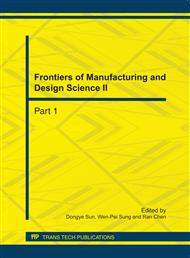p.825
p.830
p.835
p.843
p.848
p.853
p.857
p.862
p.867
Flow Predictable Optimal Scheduling Control of Sewage Discharge System
Abstract:
The current city sewage system which lacks of global scheduling discharge function easily causes high energy cost and sewage overflow problems. This paper introduces a new method based on the analysis of previous sub-time flow data, using the improved LS-SVM method to predict the volume of real-time inflow. The algorithm will adjust control objectives when inflow changes drastically so as to prevent sewage overflow and achieve energy efficiency. The simulation results show that under the control strategy we introduced, the system has good behaviors of determining and fast-tracking inflow changes. In addition, by implementing the flow scheduling discharge function, the pumping stations are dealing well with flow mutation and are able to maintain stable liquid levels so as to prevent overflow.
Info:
Periodical:
Pages:
848-852
Citation:
Online since:
October 2011
Authors:
Price:
Сopyright:
© 2012 Trans Tech Publications Ltd. All Rights Reserved
Share:
Citation:


